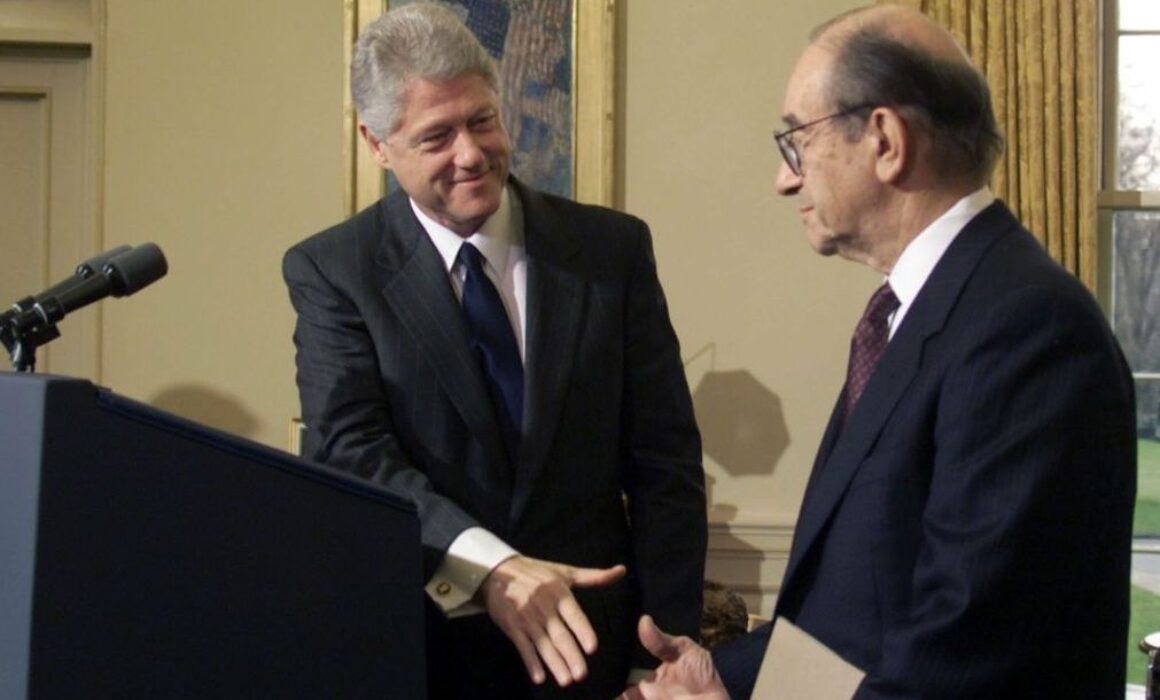Moving beyond Austerity Politics
September 6, 2024
How deficit fearmongering limited our political imagination.
The Roosevelt Rundown features our top stories of the week.

Former President Bill Clinton and then–Federal Reserve Chair Alan Greenspan in the Oval Office on January 4, 2000. (Photo by Mark Wilson)
How the Deficit Hawks Took Over
How did Democrats go from the party of the New Deal in the 1930s to one that sought to reduce the federal deficit at all costs by the 90s and 2000s? In a new brief, historian and Roosevelt Fellow David Stein traces the decades-long transformation and argues that the austerity mindset—which finally appears to be fading—must be rejected for good.
Throughout the latter half of the 20th century, the economic establishment convinced Democrats across multiple administrations that the most important issue was not long-term economic prosperity for all, but the deficit. This resulted in policy choices ranging from the Clinton administration’s neglect of low-income social supports to the Obama administration’s insufficient stimulus package, which led to a needlessly long recovery from the Great Recession. This ideological tilt toward deficit hawkery didn’t just lead the federal government to tighten its checkbook; it “ratcheted down the expectations of governments,” writes Stein, “suggesting that the most important thing policymakers could do is not to provide for the public, but to satisfy private investors.” Indeed, debates over the deficit “are also debates over state design, state capacity, and democratic governance.”
But there are signs of change—most notably, the Biden administration’s centering of public investment in the American Rescue Plan and Inflation Reduction Act. As Stein writes, initiatives like those related to green industrial strategy have “signaled a shift away from a four-decade paradigm that prioritized deficit reduction and monetary policy as the main tools of economic management, and fiscal discipline as an essential metric of good economic policy.”
Read more in “The Deficit-Hawk Takeover: How Austerity Politics Constrained Democratic Policymaking.”
What We’re Talking About
New jobs numbers show the unemployment rate falling to 4.2% even as inflation continues to fall.
The job market is stronger than the (impressive by normal standards) unemployment rate would typically imply because labor force growth has been so strong.https://t.co/2T0zrmnNBQ pic.twitter.com/yMYWHtrWZV
— Roosevelt Institute (@rooseveltinst) September 6, 2024
What We’re Reading
How to Get a Job in Progressive Politics or Organizing – by Roosevelt’s Katie Kirchner – Teen Vogue
How Much Will the CHIPS Act Help the Workers Who Make Them? – The American Prospect
Families Are Paying Millions in School Lunch Junk Fees – Jacobin